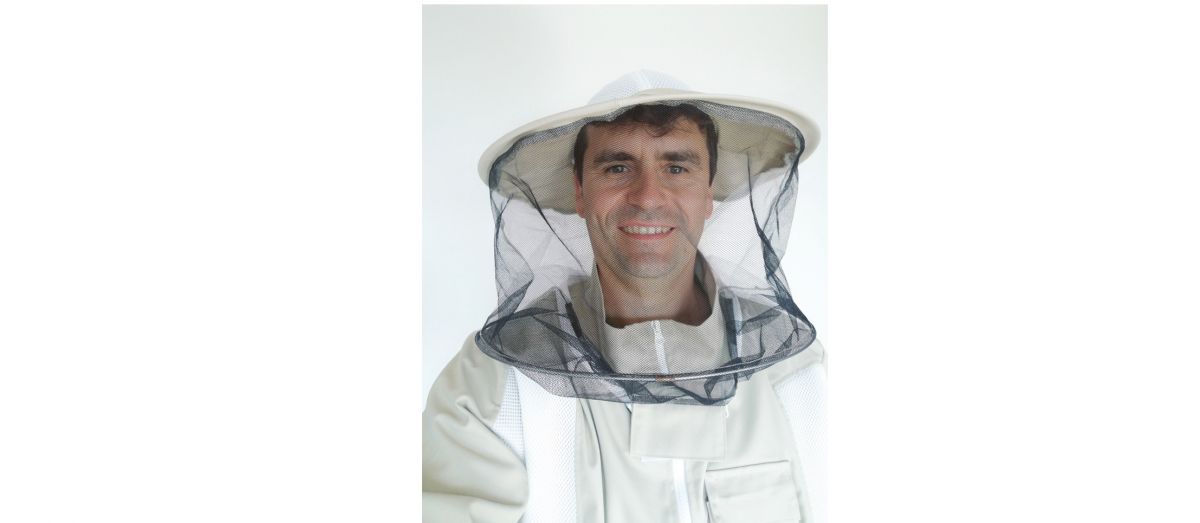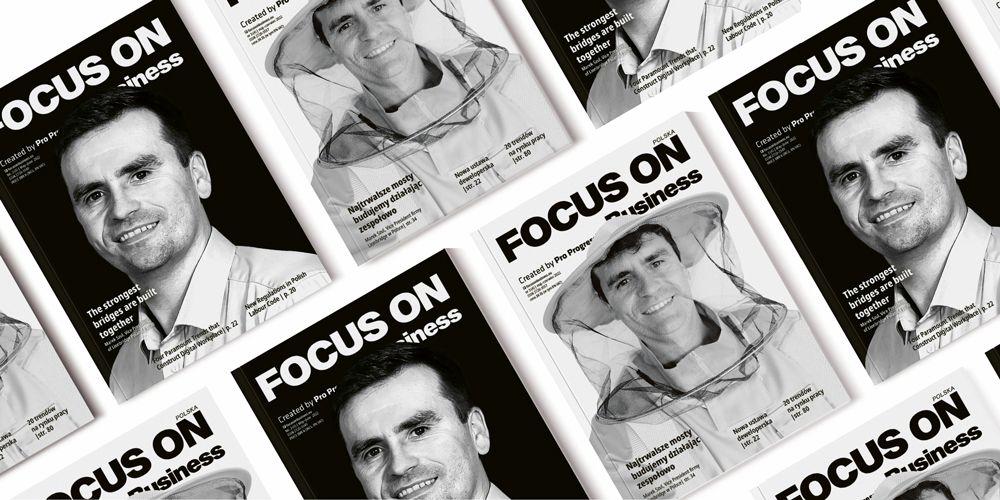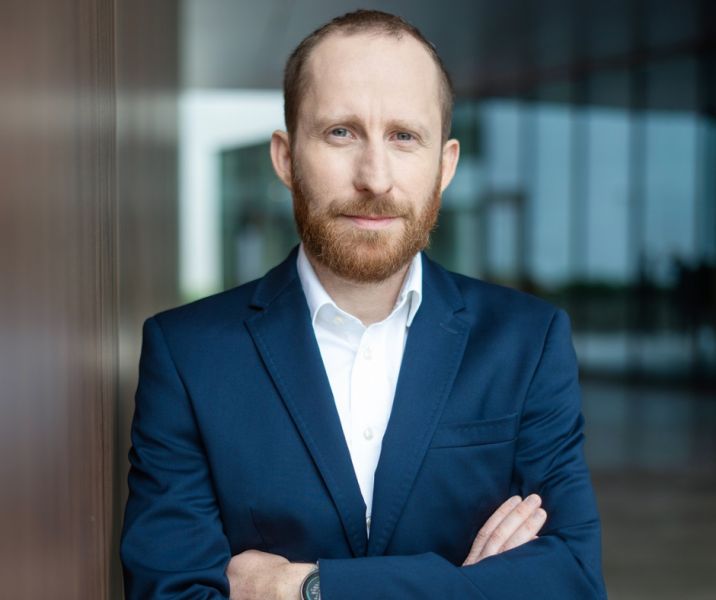The strongest bridges are built together

Interview with Marek Szul, Vice President of Lionbridge Poland.
Wiktor Doktór, Pro Progressio: At the latest Outsourcing Stars Gala Organized by Pro Progressio you were awarded the title of the Manager of the Year. Every year, this title is granted to an extraordinary person who has multi-dimensional, significant impact on developing modern services for the business. Does this award correspond to your vision of the business role you hold? What is your recipe for success?
Marek Szul, Lionbridge Poland: Success was never an end in itself to me, but without any doubt, I can say I’m really passionate about my work. I have a deep-rooted working methodology, which says that once I find an interesting idea, I simply do my best to put it into action. In my book, anything’s possible and, apart from the knowledge, the only thing that it takes to realize your goals is your time and effort. Other things that may come handy along the way are being humble, having respect for others, being genuine, hardworking, passionate, enthusiastic, as well as fully engaged and dedicated. I accept no half measures in what I do – I’m either fully in, or not there at all.
For me, success happens when I have an opportunity to work with an excellent and ambitious team, just like the one I cooperate with at the moment. During our work, every person has a very important role: not only the leaders, but also the analysts, and finally those who actually do the job. So, it all starts with a carefully selected, diversified structure that facilitates top performance under the supervision of an individual who motivates, communicates, sparks new ideas, leads employees towards action and, last but not least, celebrates the successes of the team. Honest and open approach based on trust, faith in what we do, engagement and the ability to motivate the team members are the basis for the effective teamwork, which, in my opinion, is the one and only way to success.
The mission of Lionbridge, the company that you manage in Poland, is: “Breaking barriers. Building bridges”. How precisely do you build those bridges for a client who comes to you and asks for your help?
In a nutshell, what we do is globalize, localize and translate. We assist our clients in being understood and well-received on their target markets. For example, when one of our clients would like to enter the Asian market and needs to have their website translated into one of local languages, we offer them a complete package, which means that the content provided by us is fully adjusted to the specifics of the market. In essence, we build cross-cultural bridges by way of offering fully functional translations produced by native speakers of the target language.
And vice versa: as part of our globalization efforts, we produce communication that allows the local or regional entities to go global. We build bridges by the very definition of our operations, but that’s not all: we also know what strategy is the most suitable for each of the sectors and industries we specialize in. A good example would be the Life Sciences industry, including pharmacy, which often is regulated by complex laws, such local requirements as for the drug labelling, and many other rules and regulations. Hence, the industry knowledge is of key importance here. The same is true for preparing all documentation, manuals, as well organizational communications and annual or quarterly financial reports – and all other things. We also perform linguistic testing, which ensures the correctness of the translation, as well as functional testing, whose aim is to make sure that the localized websites, applications and video games work properly.
As we’re talking about bridges, I would like to mention one of our more interesting services: OPI (Over the Phone Interpretation), which stands for simultaneous interpreting performed remotely, over the phone. This service is often used by various public institutions and offices. The need for this type of support is on the increase especially now, when local authorities have to assist great numbers of Ukrainian refugees who don’t always speak any of the languages used at a particular location. In such cases, we can offer an over the phone conversation between the three parties: the customer, the clerk and the translator, which ensures that all procedures run smoothly and in a way that is the most convenient to the foreigner.
Whereas on the level of our internal operations, we’ve built and we’re still building bridges between our departments in order to enable more efficient performance of our business tasks, all the while making the most of our assets and competences.
For quite some time now, we’ve been navigating a reality in which the only constant is change. With all this in mind, does your company perceive the Polish market as a good place to run its operations?
Poland still remains a stable market, despite its current challenges. Skyrocketing inflation, concerns related to the economic growth and rising remuneration levels as we’re struggling to keep up with the western countries create numerous challenges for us, but just like other companies, we are trying to find a balance between our needs and our means. We manage our business in a way that is flexible and agile. We have five Global Delivery Centers located in a few different time zones, and we plan our processes in line with the “follow the sun” rule, making sure that we make good use of all the talents spread across our offices. The portfolio of our services is very broad. Throughout the years, our offices reached high levels of specialization, but in the ever changing universe, a level of redundancy as well as DRP (Disaster Recovery Plan) and BCP (Business Continuity Planning) procedures are indispensable.
Lionbridge has about 20 worldwide locations. What is the role of the Polish office in the global structure of the company?
Among our 20 offices in the world, the GDC tasks are located in the previously mentioned five of them, while the Warsaw office is our second largest unit. Due to our geographical location and the time zone, we focus on operations for the European clients and we cooperate closely with our office in Mumbai.
A large client group that we work for along with our colleagues from India and Costa Rica, are the U.S. clients, mostly from the West Coast. In many cases, our Warsaw employees monitor and control the production processes, and they send updates and status reports to our colleagues from Project Management Offices located on different continents.
Which core processes are you currently focusing on? What is your greatest challenge at the moment?
Each GDC performs similar tasks related to our core operations, i.e., translation, localization and globalization. Apart from these activities, each center specializes in certain industries and types of services. In the past few years, our Warsaw department for linguistic testing of applications and video games has grown immensely, and as at today, we employ more than 1,000 people who perform testing and other types of tasks related to our video game operations. Importantly, the time of the global pandemic has proved to our clients that remote work may be no less effective.
In a manner of speaking, the Covid virus accelerated some changes in our industry. In the middle of 2021, we launched a global Multimedia Hub structure at Lionbridge, of which the Warsaw office is a key component. In the past few years, we’ve been receiving increasing numbers of inquiries about translations, multimedia content localization, as well as supporting live events with our services related to simultaneous interpreting, transcription and audio or video accessibility captioning. High expectations in terms of TATs and quality of the provided services require that human efforts are assisted by the latest technologies and AI. This is precisely what we’ve been doing lately, engaging our worldwide AI, Engineering, Technology Solution and R&D departments.
Let’s leave advanced technologies for a moment and move to the world of winged insects. It’s really impressive to see how easily you manage to combine your business role with your participation in the BeeHappy initiative, whose aim is to protect bees and to promote beekeeping. How does a businessperson like you come up with such an idea and what are your achievements in this field so far?
Unfortunately, there are only 24 hours in a day, and seven days in a week. This is why not all the initiatives advance in a pace that I’d like them to. Nonetheless, I am glad that this project keeps growing. We would like that more and more people become aware of the important role that bees play in our everyday lives. We encourage everyone around us to help us improve the living conditions of bees, support them in every possible way, while at the same time reducing the amounts of chemicals used and replacing them with solutions that are environmentally friendly. I would be delighted to see a greater engagement here on the part of our entire industry, which gathers huge numbers of young people, who happen to have significant impact on the environment.
We all should act in line with the rules of social responsibility, both private individuals and corporate entities. We would like to support the beekeepers, whose median age is still relatively high. Our goal is to encourage larger numbers of people to perpetuate these beekeeping traditions. Bees reside in the same environment as we do, which is constantly changing, and obviously we, humans, do not always change things for the better. Lives of bees in an increasingly human-dominated world are becoming more and more difficult. As socially responsible humans, we have a duty to help them out. If we have no time or possibility to take care of bee families ourselves, we encourage companies and institutions to actively support the beekeepers through adoption of bee families who are taken care of by our dear beekeepers in their natural habitats. Apart from the satisfaction, joy and certificates, these entities and their employees receive also various bees’ goods and a great deal of knowledge, stories, workshops and training from our seniors.
The beekeeping community gladly and eagerly adopts new members who are willing to learn their craft and perpetuate their traditions. I met plenty of amazing people who helped me to take the initial steps, and today we have over 20 families taking care of bees. I would like to make sure that the daily efforts of those people are seen and appreciated, because what it’s all about is not honey, but rather the protection of our dear winged creatures.
I am truly passionate about the life of bees, which is a subject of a number of scientific studies. I envision a synergy of the knowledge, tradition and experience of our beekeepers with new technologies, including AI, which would be useful to future generations of bee lovers.
How can one convince people – both privately and on an organizational level – to join the initiatives for the protection of bees?
It is best to start with oneself and lead by example, even in the area of our daily activities, such as striving for a cleaner environment, protecting nature from deterioration, recycling waste and being socially responsible, both for oneself and for others. We should also try our best to reduce the amount of chemical agents used in our households and choose more ecological cleaning and beauty products.
Let’s keep in mind that plants, gardens, flowerbeds, green terraces, balconies and natural lawns are places that are useful to bees. Instead of perfectly trimmed and chemically aided grassplots, let’s try to introduce natural, naturally fertilized, meadow-like lawns in our cities and near our houses. Let’s support local honey producers, who in these hard times devote a lot of their time and financial means to take good care of their beloved winged creatures. Let’s buy their products because they are the ones who help us achieve balance between the industrial the natural animal farming, including beekeeping.
We should educate children and encourage young people to join the environmental initiatives. We can see how great results brings the exchange of knowledge between the experienced senior beekeepers, who during the meetings with the younger generations are willing to share their wonderful wisdom and advice, which may be useful also in everyday life.
When it comes to the corporate level of such activities – at Lionbridge, for the past two years we've been meeting for a coffee on our green balconies and terraces. Our employees not only undertake pro-environmental volunteer work, but they also engage in physical farming of plants, including melliferous herbs and perennials.
I’m proud to say that last year, I personally sowed 1 ha of buckwheat, and more than 5 ha of phacelia. The bees’ appetites are growing, and so is mine, therefore I am happy to be able to share my passion with others – both people my age and young beginners.
But that’s not all. You often mention the elderly community which holds a special place in your life. What bridges do you build with the Eco Senior fund? Ecology and the elderly people – that sounds intriguing, doesn’t it?
The Eco Senior fund, of which I am one of the founder members, was created out of the need to connect interests, passion, modern trends and ecological education. It’s also the outcome of the experiences gained through many projects executed with the elderly in the previous years. We act mostly in smaller towns, where the depopulation trend is more visible, though it slowed down recently due to the pandemic.
In any case, it’s plain to see that in such places there’s rarely any organized activity for the senior residents, who, having retired, oftentimes stay at home all days with nothing to do. Not to mention the fact that, as a rule, it is not easy to gain these people’s trust and to build the initial bridge with them. Elderly people often think that their best years have already passed, and if someone shows interest in them, it is because they want to sell them a set of bedsheets or kitchenware. We don’t consent to the retirement spent in front of a TV, though. The elderly have so much to offer, and we can learn a lot from them, all the while supporting them in many ways. Once again, we work on a multigenerational team here, and the results are awesome.
We already gathered more than 300 active elderly people whom we encouraged to take up their passions, invest in personal growth, socialize on a more regular basis, and spend their time in more interesting ways. These people are amazing – their openness and sense of humor simply leave us jaw dropped. Some of our most fantastic ambassadors were well over 70 at the time we started our cooperation, and before they met us, they had hardly ever left their homes at all. Now they are active, visiting new places, using the Internet, smartphones and social media, and they are connecting us to even more elderly people, which is great.
Our goals are clear: we act against exclusion, we integrate elderly communities and center them around various undertakings, such as Cud, Miód, Senior (jarring honey), or Eco Senior herb box initiative, where two-generation Eco Teams (a senior and a young volunteer) grow herbs together in modern planters. We educate the elderly and their families – we challenge the traditional ideas about the old age. We are working towards launching a senior personal trainer project, which will be based on educational programs created following all the experiences gathered by us so far.
These are just a few examples of what we do. Each of our projects is a bridge in one sense or another – we bring together different generations, we show that retirement can be a great period of life, we challenge the stereotypes about the elderly. We’re working on a numer of exciting projects, and for sure in the nearest future you will hear about the Eco Senior fund again. Everybody’s welcome to join us – after all, we’re all going to retire someday, and it is up to us to create a greater future for ourselves and for others. It is hard to find a more convincing incentive to join such beneficial activities.
Thank you very much for the inspiring conversation.
This article comes from magazine:
FOCUS ON Business #4 May-June (3/2022)
 Check the issue
Check the issue








